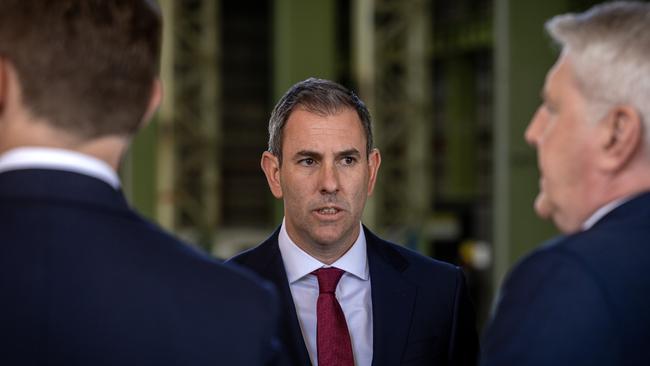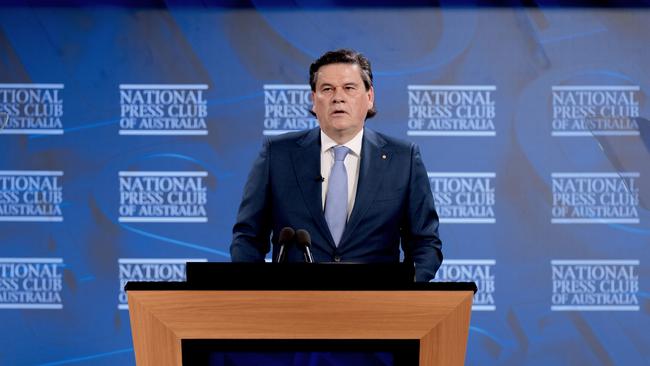Chalmers takes jobs manifesto to the Queensland outback
Treasurer Jim Chalmers has headed to outback Queensland to sell his fresh jobs plan amid warnings from bosses.

Breaking News
Don't miss out on the headlines from Breaking News. Followed categories will be added to My News.
Treasurer Jim Chalmers has taken his jobs manifesto to the Queensland outback, visiting regional towns of Rockhampton, Winton, Longreach and Bundaberg.
Released on Monday, the Treasurer’s 252-page jobs plan, which includes 31 ‘broad reform directions’, nine new ‘policy initiatives’ and a union-backed ambition of zero involuntary unemployment, was largely a restatement of the government’s existing priorities.
The document will seek to guide the government in reforms currently underway across a range of areas, including reforms to the migration system, investment in skills and enhancements to workforce participation.
A key focus of the jobs blueprint, and the changes to follow, will be on regional and remote Australia where unemployment tends to be well above the national average, particularly in areas with high Indigenous populations.

Speaking ahead of his ‘bush blitz’, the Treasurer said the government’s job plan was set to make a meaningful difference in the future, including for regional Queenslanders.
“As a government, we want to make sure people in places like Rockhampton, Winton, Longreach and Bundy are beneficiaries of the big shifts that are shaping our economy – that’s what the Employment White Paper is all about,” Dr Chalmers said.
“Regional and remote Queensland has always made a really big, important contribution to Australia’s national prosperity and it will play an even bigger role in the defining decade ahead.”

While the Australian Council of Social Services and the Australian Council of Trade Unions welcomed the new jobs strategy, business groups, who remain hostile to the government’s forthcoming workplace changes, were not placated by the plan.
The proposed changes to workplace laws include a crackdown on labour hire, introducing minimum pay and conditions for gig economy workers, and an enhanced pathway to permanency for casual workers.
Responding to the plan, the Business Council of Australia, warned the government’s proposed workplace rules would “undermine the objectives set out in the White Paper.”
“It will risk fossilising industry structures and work practices when we know technology is going to change and people and workplaces need to adapt quickly,” the council’s chief executive Bran Black said.

“It runs the risk of doing this when economies that are more dynamic than ours are doing exactly the opposite.”
Ai Group chief executive Innes Willox praised the employment white paper for its focus on improving job opportunities and enhancing productivity, but shared Mr Black’s concerns.
“The overall ambition of making it easier for people to enter the workforce does not sit well with the government’s deeply problematic workplace relations agenda which adds enormously to the complexity of employment for employers and creates new barriers to employment across the economy, forcing thousands into insecure work,” Mr Willox said.
Originally published as Chalmers takes jobs manifesto to the Queensland outback


